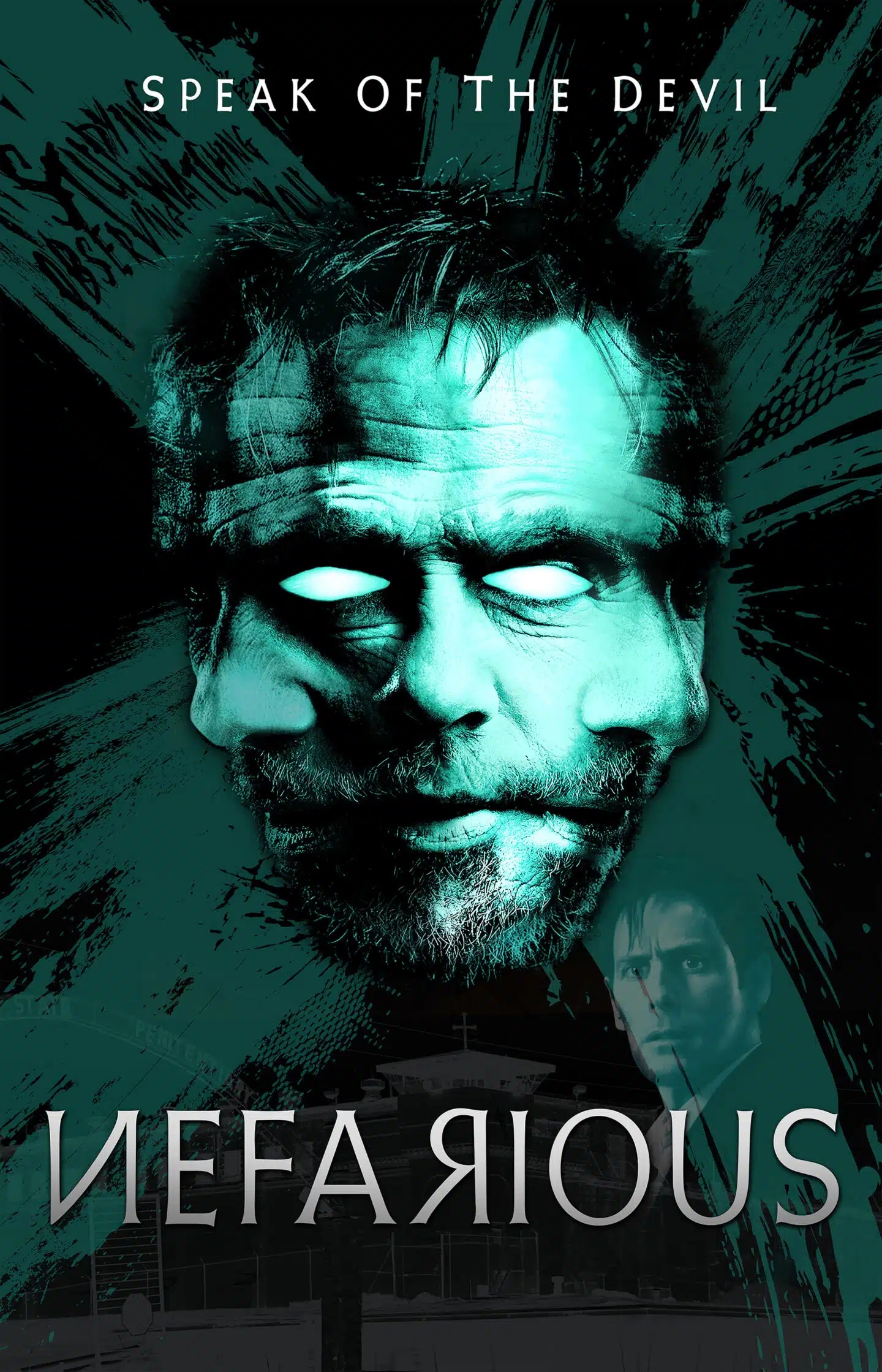|
Nefarious Film review by Thomas M. Sipos |
|
MENU Books Horror Film Festivals and Awards
Pursuits
Blogs Horror Film Festivals and Awards
Other
|
Nefarious (2023, director:
Chuck Konzelman & Cary Solomon;
cast Sean Patrick Flanery, Jordan Belfi)
We never see Nefarious in all his dark glory. We only see the man he possesses, a serial killer named Edward Brady (Sean Patrick Flanery). After he is convicted and sentenced to death, Brady claims that Nefarious made him kill all those people. Why didn't Brady say so during his trial? Because Nefarious wants Brady to die in the electric chair, so he wouldn't let him use that as a defense. Now Brady must be psychiatrically reevaluated to see if he is competent to be executed. Dr. James Martin (Jordan Belfi) is tasked to determine if Brady is insane or only pretending to be possessed by a demon. That Brady might actually be possessed is never seriously considered by Martin or the prison authorities. Nefarious could as easily be titled Interview with the Demon. This is a talky film, much of it devoted to Dr. Martin and Nefarious debating theology and morality inside a prison interview room. Martin is an atheist who tries to poke holes in Nefarious's supernatural claims, thus proving that Brady is feigning his possession. The demon in turn challenges Martin's rational world view and secular humanism. The film's theology is old school fire and brimstone, not feel-good Christianity. Nefarious gloats that his side is winning, and that so many more people are entering Hell than Heaven. Although Martin insists that good and evil are societal constructs, not something that can be clinically diagnosed, he cites diversity, gay marriage, and hate speech laws as examples of humanity's moral evolution. To which Nefarious laughs. At one point, Martin calls for the prison chaplain. Nefarious reacts with hostility, until he realizes that the chaplain is a modern minister who doesn't believe in demons. Calming down, Nefarious says he wishes he'd met the chaplain earlier. "We're good," he tells him.
Some detractors complain that
Nefarious is "Christian propaganda" masquerading as horror. It's
true that screenwriters Cary Solomon, Chuck Konzelman, and Steve Deace
have worked on other Christian films (God's Not Dead,
Unplanned,
Do You Believe?). And yes, lead star Flanery is reputedly a devout
Catholic.

 |
"Communist Vampires" and "CommunistVampires.com" trademarks are currently unregistered, but pending registration upon need for protection against improper use. The idea of marketing these terms as a commodity is a protected idea under the Lanham Act. 15 U.S.C. s 1114(1) (1994) (defining a trademark infringement claim when the plaintiff has a registered mark); 15 U.S.C. s 1125(a) (1994) (defining an action for unfair competition in the context of trademark infringement when the plaintiff holds an unregistered mark).font>


 In religious themed horror films, Satan and his minions often
get the best lines. So too the demon Nefarious, who not only steals
all his scenes in
In religious themed horror films, Satan and his minions often
get the best lines. So too the demon Nefarious, who not only steals
all his scenes in